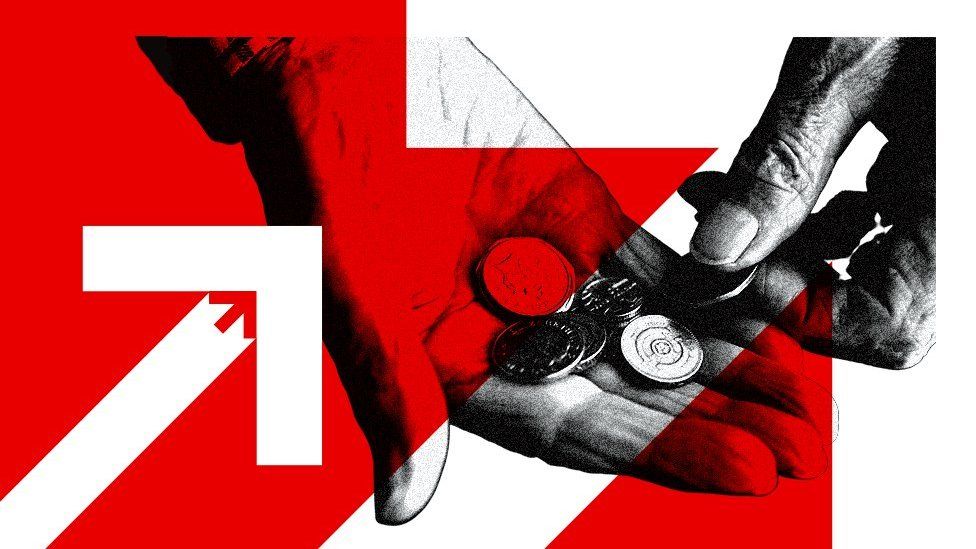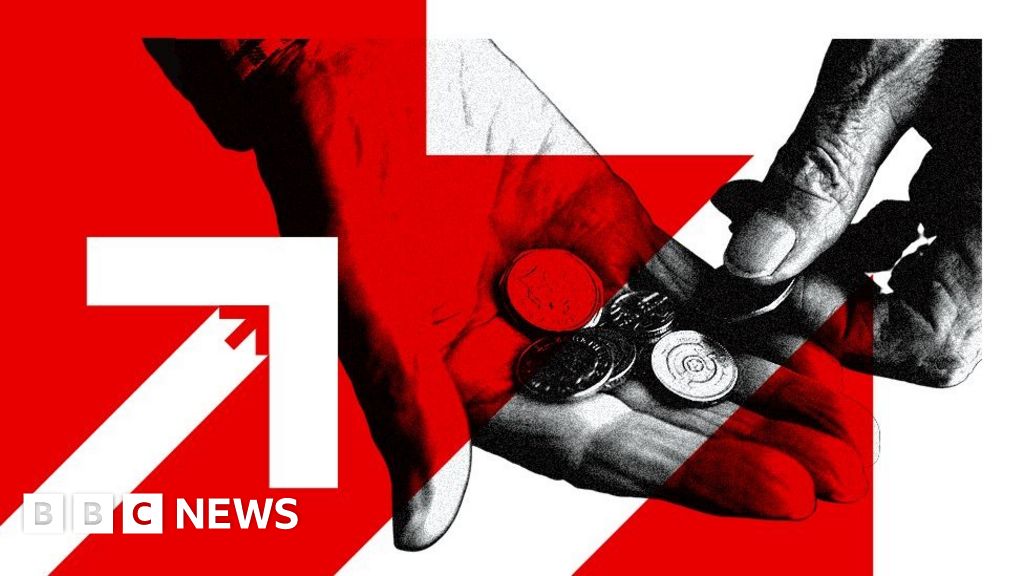
The rate of price appreciation fell to 6.8% in the year through July, down from 7.9% in June.
Food inflation decreased on items such as milk, bread and cereal, although it remained high – at 14.9%.
What does inflation mean?
Inflation is the increase in the price of something over time.
If a bottle of milk costs £1 but £1.05 after a year, the annual milk inflation is 5%.
How is the UK inflation rate measured?
The Office for National Statistics (ONS) tracks the prices of hundreds of everyday items in a placebo manner “basket of goods”.
The basket is constantly updated to reflect shopping trends, with the most recent changes adding frozen berries and removing the kopops.
The inflation figure for each month shows how much these prices have risen since the same date last year.
You can calculate inflation in different ways, but the main “main” measure is the Consumer Price Index (CPI).
What is core inflation?
Core inflation does not include energy, food, alcohol and tobacco prices.
This measure was 6.9% in July, unchanged from June which saw the highest level since 1992.
The Bank of England takes into account this number in addition to the headline inflation figure when deciding whether to change interest rates.
Why are prices rising so quickly?
Higher food and energy bills have helped drive up inflation.
Prices of alcoholic beverages in restaurants and bars have also gone up.
Your device may not support this visualization
How does raising interest rates help tackle inflation?
The Bank of England aims to keep inflation at 2%, but the current rate is much higher than that.
This makes borrowing more expensive, and can mean that some people with mortgages see their monthly payments go up. Some savings rates also increase.
When people have less money to spend, they buy fewer things, which reduces demand for goods and slows the rise in prices.
Companies also borrow less, which makes them less likely to create jobs, and they may lay off employees.
But when inflation is caused by factors such as global energy prices, action by the Bank of England may not be enough to slow it down.
Are wages keeping pace with inflation?
Many people’s salaries do not keep pace with rising prices.
But when you factor in inflation, it was down 0.6%.
Unions say wages should reflect the cost of living and many workers have gone on strike over wages.
However, the government says that large wage increases may push inflation higher because companies may increase prices as a result.
When will inflation fall?
Lower inflation does not mean lower prices. It just means that it rises at a slower speed.
The Bank of England predicted that inflation would fall to 5% by the end of 2023, instead of the 4% it had expected.
But he conceded that price inflation was “stickier than previously expected”.
What happens to inflation and interest rates in Europe and the United States?
Other countries are also experiencing cost-of-living pressures.
Many of the reasons are the same – increasing energy costs, shortages of goods and materials, and the fallout from Covid.
The European Central Bank also increased interest rates in an effort to reduce inflation in the Eurozone. that it Prime rate now 4%And The highest level in 22 years.
